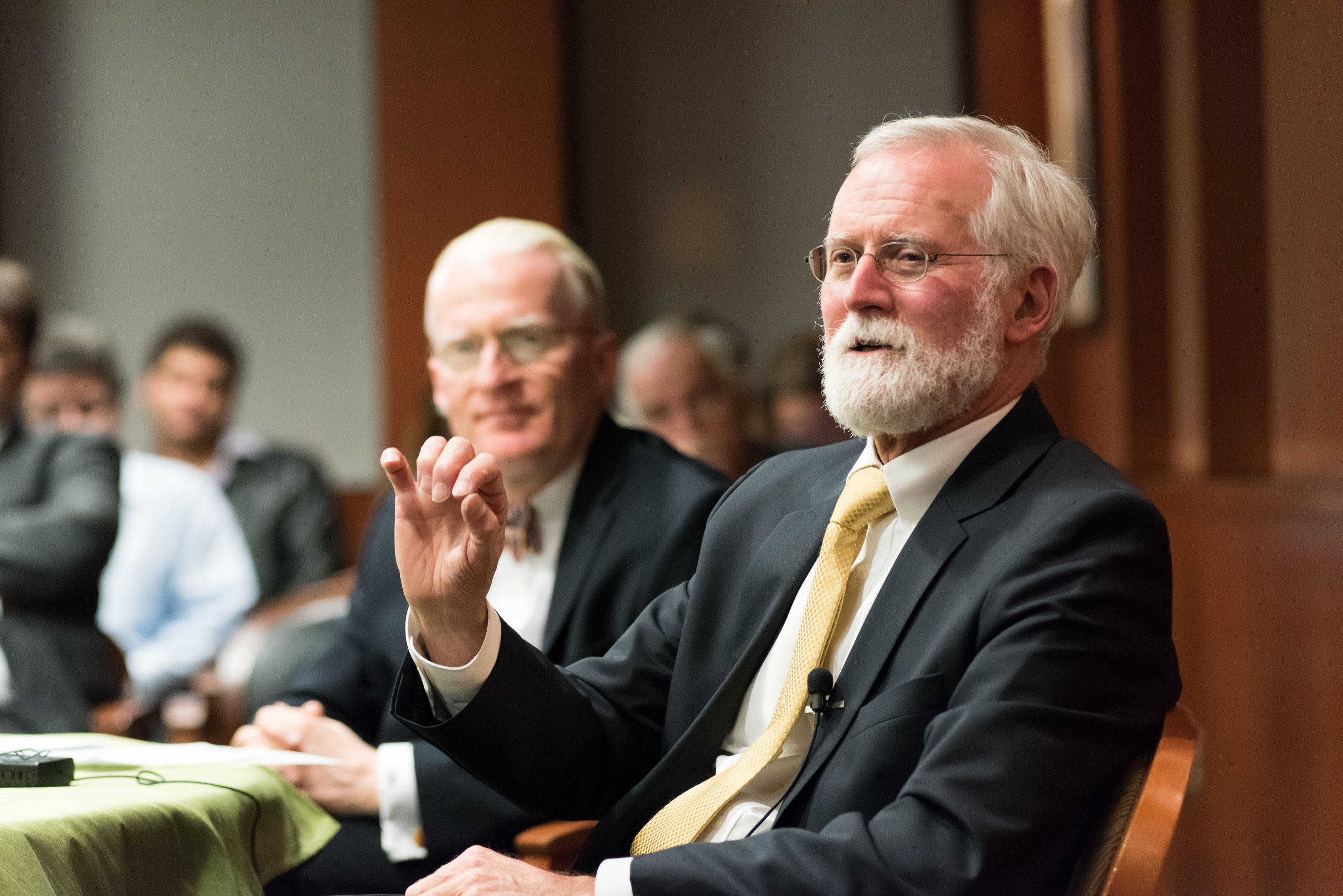The Intellectual Property Law Program hosted The Honorable William C. Bryson of the U.S. Court of Appeals for the Federal Circuit for the spring edition of its bi-annual A. Sidney Katz Lecture. The lecture, which is made possible through an endowment by the late Sidney Katz, JD '66, brings notable figures in intellectual property law to share their knowledge and connect with students, alumni, and faculty.
John Whealan, Intellectual Property Advisory Board Associate Dean for Intellectual Property Law Studies, started off the discussion with Judge Bryson by asking about his path to the public sector. Judge Bryson felt drawn to public service not just because of a desire to serve, but also because it gave him responsibilities and opportunities earlier than he would have had them otherwise. "I could see even from law school that the kinds of opportunities for experience that you get in the government and the satisfaction of representing the United States were things that are hard to replicate in any other form of representation," he said.
The conversation next moved to the 17 years of Judge Bryson's career at the Department of Justice. For much of that time, he worked in the Office of the Solicitor General, which handles government litigation in the Supreme Court and approves or disapproves every appeal stemming from adverse decisions on district courts. As part of that office, he ended up in front of the Supreme Court to argue only his second appellate case.
In 1994, after years of experience in criminal appeals, President Bill Clinton appointed Judge Bryson to the Federal Circuit. To fulfill his duties, he dove deeply into the subject matter of the court with the aid of his colleagues. As a new judge, he found his appellate experience helpful. "I had a good feeling for the process, and I was comfortable writing opinions, which are basically briefs where you get to decide which side you're on," he said.
Today, Judge Bryson has taken on senior status on the Federal Circuit. With the extra time he has sat by designation in around 200 cases in the Eastern District of Texas, which is known for handling a large amount of patent litigation.
After covering a handful of other topics, including use of law clerks and jury instructions, Judge Bryson ended the discussion by offering his advice to the students in the audience. He encouraged them to allow themselves to make changes in their careers when necessary and not be tempted by factors like money at the expense of happiness. To know when to make a change, he told students to ask what he calls the Sunday night question. "On Sunday night I ask myself, 'Am I looking forward to going back to work tomorrow?'" he said. "And if the answer to that every Sunday night is 'no,' and that's the candid answer you give yourself, then it's time for a change, folks."


